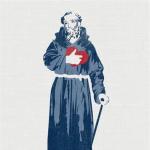Chichikov is the main character of the poem childhood. Essay on the topic: Chichikov’s childhood and life (based on the poem by N.V.
The origins of our hero are dark and humble. The parents were nobles, but whether they were official or private, God knows; his face did not resemble them: at least the relative who was present at his birth, a short, short woman, who are usually called Pigalits, took the child in her hands and cried out: “He didn’t come out at all like I thought!” He should have taken after his mother’s grandmother, which would have been better, but he was born simply, as the proverb says: neither his mother nor his father, but a passing young man.” At the beginning, life looked at him somehow sourly and unpleasantly, through some muddy, snow-covered window: no friend, no comrade in childhood! A small house with small windows that did not open either in winter or in summer, the father, a sick man, in a long frock coat with fleeces and knitted flappers worn on his bare feet, sighed incessantly as he walked around the room and spat in the sandbox standing in the corner , eternal sitting on a bench, with a pen in his hands, ink on his fingers and even on his lips, an eternal inscription before his eyes: “don’t lie, listen to your elders and carry virtue in your heart”; the eternal shuffling and shuffling of the clappers around the room, the familiar but always stern voice: “I fooled you again!”, which responded at the time when the child, bored with the monotony of work, attached some kind of quotation mark or tail to a letter; and the ever-familiar, always unpleasant feeling when, following these words, the edge of his ear was twisted very painfully by the nails of long fingers reaching behind him: here is a poor picture of his initial childhood, of which he barely retained a pale memory. But in life everything changes quickly and vividly: and one day, with the first spring sun and overflowing streams, the father, taking his son, rode out with him on a cart, which was pulled by a fly-tailed pinto horse, known among horse dealers as a magpie; it was ruled by a coachman, a little hunchbacked man, the founder of the only serf family that belonged to Chichikov’s father, who occupied almost all positions in the house. They dragged themselves at forty for more than a day and a half; We spent the night on the road, crossed the river, ate cold pie and fried lamb, and only on the third day in the morning did we reach the city. The city streets flashed before the boy with unexpected splendor, making him gape for several minutes. Then the magpie splashed along with the cart into the hole, which began a narrow alley, all sloping down and filled with mud; She worked there for a long time with all her might and kneaded with her feet, incited by both the hunchback and the master himself, and finally dragged them into a small courtyard that stood on a slope with two blossoming apple trees in front of an old house and a garden behind it, low, small, consisting only of rowan trees, elderberry and hiding in the depths of its wooden booth, covered with shingles, with a narrow frosted window. Here lived a relative of theirs, a flabby old woman, who still went to the market every morning and then dried her stockings by the samovar, who patted the boy on the cheek and admired his plumpness. Here he had to stay and go to classes at the city school every day. The father, having spent the night, set out on the road the next day. At parting, no tears were shed from the parents' eyes; half a copper was given for expenses and delicacies and, what is much more important, a smart instruction: “Look, Pavlusha, study, don’t be stupid and don’t hang around, but most of all please your teachers and bosses. If you please your boss, then, even though you don’t have time in science and God hasn’t given you talent, you will put everything into action and get ahead of everyone else. Don’t hang out with your comrades, they won’t teach you any good; and if it comes to that, then hang out with those who are richer, so that on occasion they can be useful to you. Don’t treat or treat anyone, but behave better so that you will be treated, and most of all, take care and save a penny: this thing is the most reliable thing in the world. A comrade or friend will deceive you and in trouble will be the first to betray you, but a penny will not betray you, no matter what trouble you are in. You will do everything and ruin everything in the world with a penny.” Having given such instructions, the father parted with his son and trudged home again on his magpie, and from then on he never saw him again, but the words and instructions sank deep into his soul.
Chichikov
Pavlusha started going to classes the next day. He did not appear to have any special abilities for any science; He distinguished himself more by his diligence and neatness; but on the other hand, he turned out to have a great mind on the other side, on the practical side. He suddenly realized and understood the matter and behaved towards his comrades in exactly the same way: they treated him, and he not only never, but sometimes even hid the received treat and then sold it to them. Even as a child, he already knew how to deny himself everything. Of the half-ruble given by his father, he didn’t spend a penny; on the contrary, that same year he already made additions to it, showing almost extraordinary resourcefulness: he molded a bullfinch out of wax, painted it and sold it very profitably. Then, for some time, he embarked on other speculations, namely this: having bought food at the market, he sat in the classroom next to those who were richer, and as soon as he noticed that a friend was starting to feel sick - a sign of approaching hunger - he stuck out his shirt to him. under the benches, as if by chance, a corner of a gingerbread or a bun and, having provoked him, he took the money, depending on his appetite. For two months he fussed around in his apartment without rest around a mouse, which he had put in a small wooden cage, and finally got it to the point where the mouse stood on its hind legs, lay down and stood up when ordered, and then sold it for a very profit. When he had enough money to reach five rubles, he sewed up the bag and began saving it in another.
In relation to his superiors, he behaved even smarter. No one knew how to sit on a bench so quietly. It should be noted that the teacher was a great lover of silence and good behavior and couldn't stand smart people spicy boys ; it seemed to him that they must certainly laugh at him. It was enough for the one who was reprimanded for his wit, it was enough for him to just move or somehow inadvertently wink his eyebrow to suddenly fall under anger. He persecuted him and punished him mercilessly. “I, brother, will drive arrogance and disobedience out of you! - he said. “I know you through and through, just as you don’t know yourself.” Here you are, standing on my knees! I’ll make you go hungry!” And the poor boy, without knowing why, rubbed his knees and went hungry for days. “Abilities and gifts? “It’s all nonsense,” he used to say, “I only look at behavior.” I will give full marks in all sciences to someone who doesn’t know the basics but behaves commendably; and in whom I see a bad spirit and mockery, I am zero to him, although he put Solon in his belt! So said the teacher, who did not love Krylov to death because he said: “For me, it’s better to drink, but understand the matter,” and always told with pleasure in his face and eyes, as in the school where he taught before, There was such silence that you could hear a fly flying; that not a single student coughed or blew his nose in class all year round, and that until the bell rang it was impossible to know whether anyone was there or not. Chichikov suddenly understood the spirit of the boss and what behavior should consist of. He did not move an eye or an eyebrow during the entire class, no matter how much they pinched him from behind; as soon as the bell rang, he rushed headlong and gave the teacher his hat first (the teacher wore a hat); Having handed over his hat, he was the first to leave the class and tried to catch him three times on the road, constantly taking off his hat. The business was a complete success. During his entire stay at the school, he was in excellent standing and upon graduation received full honors in all sciences, a certificate and a book with golden letters for exemplary diligence and trustworthy behavior. Coming out of school, he found himself already a young man of rather attractive appearance, with a chin that required a razor. At this time his father died. The inheritance included four irretrievably worn sweatshirts, two old frock coats lined with sheepskin, and a small amount of money. The father, apparently, was only versed in the advice of saving a penny, but he saved a little of it himself. Chichikov immediately sold the dilapidated little yard with an insignificant plot of land for a thousand rubles, and transferred a family of people to the city, intending to settle there and engage in service. At the same time, a poor teacher, a lover of silence and praiseworthy behavior, was expelled from the school for stupidity or other guilt. The teacher began to drink out of grief; finally he had nothing left to drink; sick, without a piece of bread and help, he disappeared somewhere in an unheated, forgotten kennel. His former students, clever men and wits, in whom he constantly imagined disobedience and arrogant behavior, having learned about his pitiful situation, immediately collected money for him, even selling many things he needed; Only Pavlusha Chichikov made the excuse of not having anything and gave some silver nickel, which his comrades immediately threw to him, saying: “Oh, you lived!” The poor teacher covered his face with his hands when he heard about such an act. former students theirs; Tears poured like hail from the fading eyes, like those of a powerless child. “On his deathbed, God brought me to cry,” he said in a weak voice and sighed heavily when he heard about Chichikov, adding immediately: “Eh, Pavlusha! This is how a person changes! After all, he was so well-behaved, nothing violent, silk! I cheated, I cheated a lot..."
The poem “Dead Souls” includes three parts. The third of them is entirely devoted to the story about the childhood and life of the key character - P. I. Chichikov.
Biography of the main character of “Dead Souls”
Nikolai Vasilyevich Gogol begins the description of his character with a capacious characteristic: “So, let’s harness the scoundrel.” By this he clearly demonstrates his attitude towards him.
Childhood and youth of Pavel Chichikov
It should be noted that the boy’s first years are painted in dull colors: he has no friends, and at home he receives neither care nor warmth, listening only to reproaches and teachings.
Having reached the required age, Pavlusha is assigned to school.
Testaments of the hero's father
On the day of his departure, the father, “blessing” the boy for an independent life, gives him several parting words.
He instructs his son to always please teachers and bosses, saying that this is what will allow him to always be ahead.
Well, my father’s most important commandment is to “save a penny.” The parent tries to explain to the boy that money is the real friend in a person’s life.
These teachings main character remembers for life... They become his life credo. Perhaps because these are the only words the father said to his son in a warm, friendly conversation.
Be that as it may, the young man fulfills the commandments exactly: he curries favor with the teachers, always behaves obediently and exemplarily (even to the detriment of his classmates).
He also communicates exclusively with children of wealthy parents. And collects every penny. He tries to make money, and, admittedly, he succeeds.

Life and activities of P. Chichikov after graduation
After graduating from college, the hero “sets out on the civilian path.” He changes several jobs, pursuing one goal - enrichment. He manages to work in the treasury chamber, the commission for the construction of a state building, customs...
Whatever Chichikov does, he sees nothing reprehensible in breaking moral laws.
So, he is the only one who does not provide financial assistance to a sick teacher, lies to a girl about his love for the sake of a “grain place”, takes bribes, pulls off scams...
It cannot be said that fate is kind to Pavel Ivanovich. She often ruins his plans, leaving him with nothing. But Chichikov doesn’t even think about giving up. Time and time again he rises up and invents new ways to make money. His perseverance and self-belief deserve respect.
After a series of defeats, the man comes up with a kind of brilliant idea - selling dead souls.
The first volume of the poem is dedicated to this scam.
N.V. Gogol devotes one chapter to describing the social and psychological appearance of the main character.
He does this in order to better explain to readers who Pavel Ivanovich Chichikov really is.
And he is a businessman of a new format, an entrepreneur betting on capital. Chichikov is a “terrible and vile force.” He is completely different from the landowners (who are gradually becoming a thing of the past), but just like them, he does not want and is not able to contribute to the revival of his native country.
Chichikov's childhood in the poem Dead Souls?? I don’t have it anywhere but I’m too lazy to read and got the best answer
Reply from Nella[active]
The main character of the poem is the nobleman Pavel Ivanovich Chichikov. Whether he came from the pillars or personal nobles - we do not know. He received a modest education, but due to his “excellent” abilities he was promoted, although he did not stay in one place for long.
The parents of Pavel Ivanovich Chichikov belonged to the bankrupt nobility and lived far from the city on their abandoned estate. Chichikov spent his entire childhood at home - “he didn’t go anywhere or go anywhere.” His life went very dimly and unnoticed. His father, a sick man, always told him: “Don’t lie, obey your elders and carry virtue in your heart.”
So nine years passed. One spring morning On an old nag, the father takes Pavlusha to the city to study in classes. This is where it begins independent life our hero.
Before leaving, Pavel Ivanovich's father gave him advice for life. They became the “prayer” of his life: “Look, Pavlusha, study, don’t be stupid and don’t hang around, but most of all please your teachers and bosses. Don’t hang out with your comrades, they won’t teach you any good, but if that’s the case, hang out with those who are richer, so that they can be useful to you on occasion. Take care and save a penny, it will not give you away, no matter what trouble you are in. You will do everything and ruin everything in the world with a penny. " Chichikov never forgot these instructions from his father in his life, he followed them everywhere and always, they became the goal and incentive of his worthless life, for only selfishness, money and selfishness entered the heart of this man from childhood.
From the very next day, Pavlusha began going to school. He did not have any special abilities for any of the sciences, but he turned out to have completely different abilities, from the practical side. From the very first day, he began to follow his father’s instructions: he was friends only with the rich, he was the first favorite, “in class he sat so quietly that no one could sit like that for even a minute - the teachers loved him very much for this. When the bell rang, he jumped up, handed the teacher his briefcase, and then met him in the corridor five times, greeted him and bowed low.”
From the very first days, Chichikov was also interested in the material issue. He starts saving money. Either he makes a figure out of wax and sells it profitably either at the market or among his comrades, or he buys gingerbread and waits until his comrades’ stomachs tighten, and then he will “rip off four skins” for it. He put the money in a bag. When they reached five rubles, Chichikov sewed it together and began saving it for another.
Answer from CalvinKline[active]
is there a book? just read chapter 11 and that's it
Answer from Evgenia[newbie]
Thank you*)
Answer from Musraliev Albert[newbie]
Thank you, it helped
Answer from Deer Tchaikovsky[newbie]
jasvukmsmtro
Answer from 3 answers[guru]
Hello! Here is a selection of topics with answers to your question: Chichikov’s childhood in the poem Dead Souls?? I don't have it anywhere and I'm too lazy to read
N.V. Gogol’s poem “Dead Souls” was written in the late 40s of the 19th century. In this work, Gogol depicts the Russian society of that time, all the shortcomings of autocratic-serf Russia. The main character of the poem is the nobleman Pavel Ivanovich Chichikov. Whether he came from the pillars or personal nobles - we do not know. He received a modest education, but due to his “excellent” abilities he was promoted, although he did not stay in one place for long.
Pavel Ivanovich Chichikov's parents belonged to a bankrupt
The nobility and lived far from the city on their abandoned estate. Chichikov spent his entire childhood at home - “he didn’t go anywhere or go anywhere.” His life went very dimly and unnoticed. His father, a sick man, always told him: “Don’t lie, obey your elders and carry virtue in your heart.”
So nine years passed. One spring morning, on an old nag, Pavlusha’s father takes Pavlusha to the city to study. This is where our hero’s independent life begins.
Before leaving, Pavel Ivanovich's father gave him advice for life. They became the “prayer” of his life: “Look, Pavlusha, study, don’t be stupid and don’t hang around, but most of all please your teachers and bosses. Don’t hang out with your comrades, they won’t teach you any good, but if that’s the case, hang out with those who are richer, so that they can be useful to you on occasion. Take care and save a penny, it will not give you away, no matter what trouble you are in. You will do everything and ruin everything in the world with a penny.” Chichikov never forgot these instructions from his father in his life, he followed them everywhere and always, they became the goal and incentive of his worthless life, for only self-interest, money and selfishness entered the heart of this man from childhood.
From the very next day, Pavlusha began going to school. He did not have any special abilities for any of the sciences, but he turned out to have completely different abilities, from the practical side. From the very first day, he began to follow his father’s instructions: he was friends only with the rich, he was the first favorite, “in class he sat so quietly that no one could sit like that for even a minute - the teachers loved him very much for this. When the bell rang, he jumped up, handed the teacher his briefcase, and then met him in the corridor five times, greeted him and bowed deeply.”
From the very first days, Chichikov was also interested in the material issue. He starts saving money. Either he makes a figure out of wax and sells it profitably either at the market or among his comrades, or he buys gingerbread and waits until his comrades’ stomachs tighten, and then he will “rip off four skins” for it. He put the money in a bag. When they reached five rubles, Chichikov sewed it together and began saving it for another.
When our hero left school, he immediately got to work. He worked day and night, slept on tables in the office rooms, dined with the guards, but at the same time always remained neat.
Chichikov was noticed by his superiors, and he was sent to an old military officer for guidance. All the time, Pavel Ivanovich pleased his mentor and became his “son”. He promised to marry the daughter of the police officer. The old official gave a recommendation to Chichikov, and he also received the rank of police officer. This is what Pavel Ivanovich needed. He stopped going to his “patron” and did not think about marrying his daughter. Chichikov became a famous official. In the service, he took bribes, and the treasury did not go unnoticed by our hero - he got there too. Now he walked around very fashionably and richly dressed. But suddenly, in place of the former head-mattress, a new military man was sent, Strict, the enemy of bribe-takers and everything that is called untruth. He quickly figured out the matter, and Chichikov was kicked out of service.
After some time, Chichikov enters the customs service. There he also “robs” people and the state, but at the same time he works very well. The authorities say about him: “This is a devil, not a man.”
When checking cases at customs, many shortcomings were found. Many officials were arrested. Seeing this, Chichikov himself leaves the service. “He has ten thousand left in money, a small chaise, two serfs,” - all that Pavel Ivanovich was able to “put together” for himself with such efforts.
Time has passed. Chichikov again lives in “beggarly conditions, walks in only a frock coat and wears dirty shirts.” One day he got lucky and got a job as an attorney, where he again carried out his scams and went into hiding.
Pavel Ivanovich is on the road again. So she brings him to the scene of the novel. Here Chichikov decided to run another business: he wants to buy dead serfs from landowners, dead souls who are listed according to the revision
fairy tale alive.
After getting to know the city, its father-officials, visiting all kinds of dinners and balls, Chichikov goes on a journey to the landowners to carry out his plan to buy dead souls.
The first of the landowners to visit Chichikov is Manilov, a sugary, sentimental man who always dreams of various fables. Then he visits the thick-headed landowner Korobochka, Nozdryov - a reckless driver and a reveler, Sobakevich - a strong owner, Plyushkin - a miser and a morally dead man. In all these houses, Chichikov behaves differently, acquiring dead souls by any means and ways. Manilov simply gives them to our hero “out of love and respect for him.” Korobochka sells souls only because she is afraid of the evil spirits with which our businessman frightened her. Sobakevich also sells dead peasants, but not out of fear, but because of his own profit. And Plyushkin sells the peasants “fearing for every penny.” Only Pavel Ivanovich does not acquire anything from Nozdryov, but instead almost falls into the hands of a drunken landowner, then, for the same reason, he hastily leaves the city of N.
That's all we know about the life of our hero. Having read Gogol's poem, we can say about its main character as a low and vile person, resourceful and unprincipled. Yes, this is not an ideal to follow. But...Pavel Ivanovich Chichikov is a typical representative of a new type of bourgeois businessman in feudal Russia in the first half of the 19th century.
Chichikov himself cannot only be blamed for his behavior (although it largely depends on the person himself). Time itself, the course of history, plays a significant role here.
N.V. Gogol showed in “Dead Souls” the face of Russia at that time, when the nobility as a class is degrading, when new people come to the first place in life - businessmen-acquirers, people whose thoughts are low, in whose hearts there is nothing human left, except for profit, personal gain.
In his poem, the writer exposes feudal Russia (Chichikov, landowners, officials), whose life is measured only by money, where the dead are bought, where the living are sold. And all this is ruled by “dead souls” - people without souls and hearts. “Where are you rushing, Rus'-troika, what are you striving for if you are dead and only the dead live among you?” - Gogol asks his readers. Gogol wrote his poem, trying to revive Russia and protect it from Chichikov and others like him.
The creation of the poem “Dead Souls” occurred precisely at a time when in Russia there was a change in the traditional, outdated foundations of society, reforms and changes in people’s thinking were brewing. Even then it was clear that the nobility, with its old traditions and views on life, was slowly dying out; it had to be replaced by a new type of person. Gogol's goal is to describe the hero of his time, declare him loudly, describe his positive qualities and explain what his activities will lead to, as well as how it will affect the destinies of other people.
The central character of the poem
Nikolai Vasilyevich made Chichikov the central character in the poem; he cannot be called the main character, but it is on him that the plot of the poem rests. Pavel Ivanovich's journey is the framework for the entire work. It’s not for nothing that the author placed the hero’s biography at the very end; the reader is not interested in Chichikov himself, he is curious about his actions, why he collects these dead souls and what this will lead to in the end. Gogol does not even try to reveal the character of the character, but he introduces the peculiarities of his thinking, thus giving a hint where to look for the essence of this act of Chichikov. Childhood is where the roots come from; even at a tender age, the hero formed his own worldview, vision of the situation and search for ways to solve problems.

Description of Chichikov
The childhood and youth of Pavel Ivanovich are unknown to the reader at the beginning of the poem. Gogol portrayed his character as faceless and voiceless: against the background of bright, colorful images of landowners with their quirks, the figure of Chichikov is lost, becomes small and insignificant. He has neither his own face nor the right to vote; the hero resembles a chameleon, skillfully adapting to his interlocutor. This is an excellent actor and psychologist, he knows how to behave in a given situation, instantly determines a person’s character and does everything to win him over, says only what they want to hear from him. Chichikov skillfully plays the role, pretends, hides his true feelings, tries to be one of the strangers, but he does all this in order to achieve the main goal - his own well-being.

The childhood of Pavel Ivanovich Chichikov
A person’s worldview is formed at a young age, so many of his actions in adulthood can be explained by carefully studying his biography. What guided him, why he collected dead souls, what he wanted to achieve with this - all these questions are answered by The hero’s childhood cannot be called happy, he was constantly haunted by boredom and loneliness. In his youth, Pavlush knew neither friends nor entertainment; he did monotonous, tedious and completely uninteresting work, listened to the reproaches of his sick father. The author did not even hint about maternal affection. One conclusion can be drawn from this - Pavel Ivanovich wanted to make up for lost time, to receive all the benefits that were not available to him in childhood.
But you shouldn’t think that Chichikov is a soulless cracker, thinking only about his own enrichment. He was a kind, active and sensitive child, sensitive to the world. The fact that he often ran away from his nanny in order to explore previously unseen places indicates Chichikov's curiosity. Childhood shaped his character and taught him to achieve everything on his own. His father taught Pavel Ivanovich to save money and please bosses and rich people, and he put these instructions into practice.
Chichikov's childhood and studies were gray and uninteresting; he tried in every possible way to become a popular person. At first he pleased the teacher in order to become a favorite student, then he promised the boss to marry his daughter in order to get a promotion, working at customs, he convinces everyone of his honesty and impartiality, and he makes a huge fortune for himself through smuggling. But Pavel Ivanovich does all this not with malicious intent, but with the sole purpose of making his childhood dream of a big and bright house, caring and loving wife, a bunch of cheerful kids.
Chichikov's communication with landowners
Pavel Ivanovich could find an approach to everyone, from the first minutes of communication he could understand what a person was like. For example, he did not stand on ceremony with Korobochka and spoke in a patriarchal-pious and even slightly patronizing tone. With the landowner, Chichikov felt relaxed, used colloquial, rude expressions, completely adapting to the woman. With Manilov, Pavel Ivanovich is pompous and amiable to the point of cloying. He flatters the landowner and uses flowery phrases in his speech. By refusing the offered treat, even Plyushkin was pleased by Chichikov. “Dead Souls” very well demonstrates the changeable nature of man, because Pavel Ivanovich adapted to the morals of almost all landowners. 
What does Chichikov look like in the eyes of other people?
The activities of Pavel Ivanovich greatly frightened city officials and landowners. At first they compared him with the romantic robber Rinald Rinaldin, then they began to look for similarities with Napoleon, thinking that the great commander had fled from the island of Helena. In the end, Chichikov was recognized as the real Antichrist. Of course, such comparisons are absurd and even comical to some extent; Gogol ironically describes the fear of the narrow-minded landowners, their speculation about why Chichikov is actually collecting dead souls. The character's characterization hints that the heroes are no longer the same as they used to be. The people could be proud, take an example from the great commanders and defenders, but now there are no such people, they have been replaced by selfish Chichikovs.

Character's Real Self
One would think that Pavel Ivanovich is an excellent psychologist and actor, since he easily adapts to the people he needs and instantly guesses their character, but is this really so? The hero was never able to adapt to Nozdryov, because impudence, arrogance, and familiarity are alien to him. But even here he is trying to adapt, because the landowner is incredibly rich, hence the address to “you”, Chichikov’s boorish tone. Childhood taught Pavlusha to please to the right people, so he is ready to step over himself, forget about his principles.
At the same time, Pavel Ivanovich practically does not pretend to be with Sobakevich, because they are united by serving the “kopek”. And Chichikov has some similarities with Plyushkin. The character tore the poster from the pole, read it at home, folded it neatly and put it in a small chest in which all sorts of unnecessary things were stored. This behavior is very much reminiscent of Plyushkin, who is prone to hoarding various rubbish. That is, Pavel Ivanovich himself was not so far removed from the same landowners.
The main goal in the hero's life
And once again money - this is precisely why Chichikov collected dead souls. The character's characteristics indicate that he invents various frauds not just for the sake of profit; there is no stinginess or miserliness in him. Pavel Ivanovich dreams that the time will come when he can finally use his savings, live a calm, prosperous life, without thinking about tomorrow. 
The author's attitude towards the hero
There is an assumption that in subsequent volumes Gogol planned to re-educate Chichikov and make him repent of his actions. In the poem, Pavel Ivanovich is not opposed to landowners or officials; he is a hero of the capitalist formation, the “first accumulator” who replaced the nobility. Chichikov is a skilled businessman, an entrepreneur who will stop at nothing to achieve his goals. Scam with dead souls It was not a success, but Pavel Ivanovich did not suffer any punishment. The author hints that there are a huge number of such Chichikovs in the country, and no one wants to stop them.
Attention, TODAY only!
- Sobakevich - characteristics of the hero of the novel "Dead Souls"
- Box ("Dead Souls"): characteristics according to plan
- Chichikov's attitude towards Manilov. Poem by N.V. Gogol's "Dead Souls"






